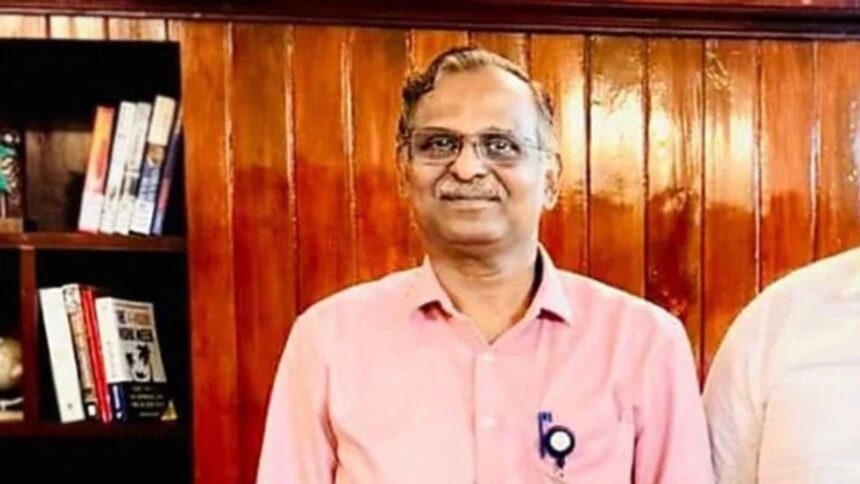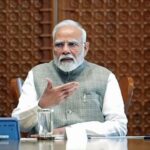Ten satellites are engaged round the clock to ensure the safety and security of the country’s citizens, Indian Space Research Organisation (Isro) chairman V Narayanan said during an event in Tripura Sunday.
His remark came as India’s tensions with Pakistan appeared to ease since the launch of last week.
Speaking at the fifth convocation ceremony of the Central Agricultural University near Agartala, he said, “If we want our country to be safe, we have to do it through satellites. We have to monitor our seashore area of 7,000 km. We can’t get many things done in the absence of satellite and drone technology,” adding that ’s satellites have been serving the common people in sectors as varied as television broadcasting, weather forecast, environment protection, agriculture, tele-education, food, and security, among others.
Asserting that satellites are working effectively when it comes to disaster management, Narayanan said thousands of lives were lost during calamities earlier but the situation has changed now.
He pointed out that India had no satellite technology till 1975 and for 70 years, the country lagged behind advanced nations in this sector.
India built satellites for G20 countries to monitor climate change and for other sectors, the Isro chief said. “Nearly 433 satellites were lifted from India for 34 countries and placed in orbit,” he stated, adding that the most expensive and advanced earth-imaging satellite would be built by India and the US and the same would be launched from India.
Speaking about -1, Narayanan stated that the mission helped India become the first nation to find evidence of water molecules on the surface of the Moon.
Several Isro satellites are also in operation to develop the Northeastern states and implement various projects in the region, he added.
Stating that nearly 100 students of science from each Northeastern state will soon be able to visit the Isro centre in as part of awareness initiatives, the Narayanan urged the students to give something back to society after they completed their studies.
“Hard work and smart work have no substitute…self-motivation and self-confidence are important. Students should be good human beings with noble qualities of leadership,” he said.








